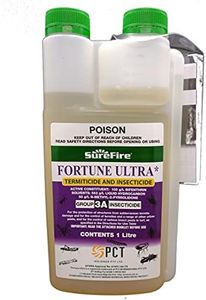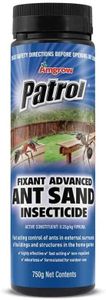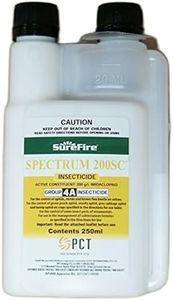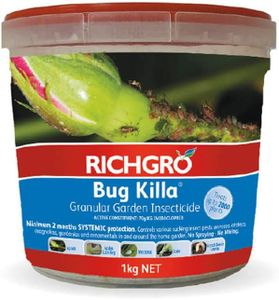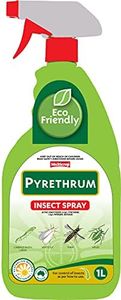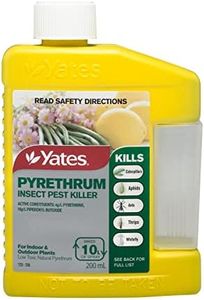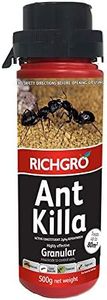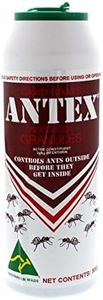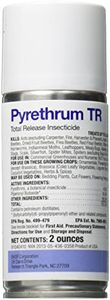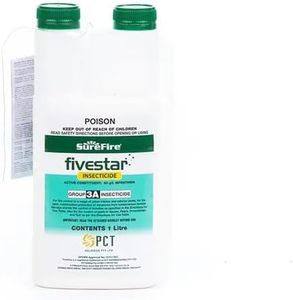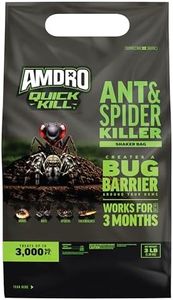We Use CookiesWe use cookies to enhance the security, performance,
functionality and for analytical and promotional activities. By continuing to browse this site you
are agreeing to our privacy policy
10 Best Scorpion Insecticide
From leading brands and best sellers available on the web.Buying Guide for the Best Scorpion Insecticide
Choosing the right insecticide to control scorpions can feel overwhelming, but by focusing on a few key characteristics, you can find a product that is both safe and effective for your needs. It's important to consider how and where the insecticide will be used, the active ingredients, and safety precautions, since scorpions can be persistent and difficult pests. Always remember to read and follow all label instructions for any insecticide, as improper use can be dangerous to people, pets, and the environment.Active IngredientThe active ingredient in an insecticide is the chemical component that actually kills the scorpions or drives them away. This is a critical factor because different chemicals work in different ways and have different levels of effectiveness. Some commonly used active ingredients for scorpion control are synthetic pyrethroids or natural options like essential oils. When choosing, look for products that specifically mention scorpions on the label and avoid those meant only for general insects, since scorpions can be more resistant. If you have pets or small children, consider ingredients with lower toxicity profiles and always follow safety guidelines.
Formulation TypeFormulation type refers to the way the insecticide is delivered, such as sprays, powders, granules, or baits. Sprays are good for cracks and crevices where scorpions like to hide, powders can be dusted in wall voids or hard-to-reach areas, and granules might be ideal for creating a perimeter around your home. Baits are less common for scorpions since they are predators, not attracted to many baits. Choose the formulation based on where you plan to treat and what will be most convenient or safe in your environment.
Residual EffectResidual effect means how long the insecticide remains active after application. Some products work quickly but lose effectiveness after a few days, while others can provide protection for weeks or even months. If you live in an area with frequent scorpion activity, a longer residual may reduce the need for repeated applications. However, if you only have occasional sightings, a shorter-acting product used as needed could be sufficient. Always balance longer-lasting protection with safety, especially indoors.
Indoor vs. Outdoor UseNot all insecticides are safe or effective for both indoor and outdoor use. Products labeled for outdoor use are often stronger and meant to withstand weather, whereas indoor products focus on being safer around people and pets. If scorpions are entering from outside, you might need both kinds: a perimeter treatment outdoors and a safe option indoors. Always make sure to follow labeling precisely, as using outdoor-only products indoors can pose health risks.
Ease of ApplicationEase of application can depend on your comfort level and the area you need to treat. Some products require mixing or careful application equipment, while others come in ready-to-use cans or bottles. If you have never used insecticides before or want a quick solution, look for ready-to-use products that require minimal extra tools or knowledge. If you’re treating a large area or want more control, concentrates or powders might be worth considering, but these can be more complicated to use safely.
Safety and Environmental ImpactSafety and environmental impact refers to how the product affects humans, pets, and the environment. Some insecticides have low toxicity and break down quickly, while others linger and can harm wildlife or beneficial insects. If you have pets, children, or a garden, look for products labeled as pet-safe or organic, and avoid using insecticides near edible plants or water sources. Every user’s situation is unique, so always make safety your top priority.
